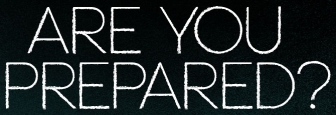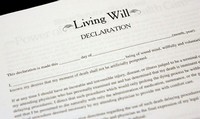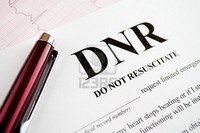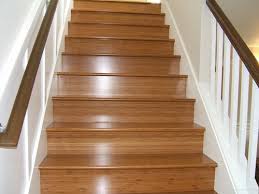While this article gives brief explanations of what and why you shouldn’t say certain things to caregivers of loved ones with dementias and Alzheimer’s Disease (and any other chronic age-related illness), I would like to focus on being mindful of what we say to caregivers who are taking care of loved ones suffering from dementias, Alzheimer’s Disease, and/or other age-related illnesses. The human proclivity is to talk without thinking and my hope is that, with this post, we’ll all slow down, take a deep breath, and think before we speak.
As difficult as it may be to comprehend in our multitasking, “have-it-all, do-it-all,” split-second world, once we chose to become caregivers, our lives stop in many ways and we have a single focus: taking care of the loved one(s) entrusted to our care.
This has become an anomaly in our 24/7 digital, connected, always-on society. Personally, I believe it is why caregivers often find themselves alone in taking care of their loved ones. Siblings, friends, and other family just can’t slow down, disconnect, and, yes, sometimes, can’t be bothered with the labor and time-intensive task of caring for a loved one.
 Agingcare.com posted a list of things not to say to caregivers of our loved ones with dementias and Alzheimer’s disease.
Agingcare.com posted a list of things not to say to caregivers of our loved ones with dementias and Alzheimer’s disease.
I always add caveats to these black-and-white statements, so please know that I understand there are many circumstances, sometimes way beyond our control, to be an interactive part of the caregiving process.
What I am talking about here are the able, the capable, but the unwilling and unrelenting people within the circle of our lives who could, but won’t step up to the plate, but who often are our most vocal critics.
But this post isn’t a diatribe against these people. There are a lot of reasons for why, some of which I and all the other caregivers out there will never understand, and accepting that is part of building character. It is what it is. Anger, resentment, and bitterness don’t hurt anyone but us and our loved ones, so please don’t let any of these take root and let them become who we, as caregivers, are.
This post is about what we all should be mindful of not saying to caregivers of loved ones suffering from Alzheimer’s Disease, dementias, and/or other age-related illnesses. It is about thinking before we speak and putting ourselves in someone else’s shoes. It is about sensitivity, care, concern, and love.
Most of the people who say some of these things listed in “11 Things You Should Never Say To a Caregiver,” have never been caregivers for loved ones and would never consider being caregivers because it would mean they would have to sacrifice their lives, give up what they want to do, put their own goals and ambitions aside – and risk losing their place and relevance in their careers, their social networks, their lives as they define them (and when a person makes the choice to be a caregiver to a loved one first and foremost, it dramatically, and not always positively, changes his or her life in all these areas both on a short-term and long-term basis).
I get that. Once upon a time in my own life, I was all about me, about my career, my success, my move up the corporate ladder. Every career move I made was a step forward, carefully planned (and blessed and allowed by God, much like Jacob in his life [reading through Genesis in the last week or so has made me realize how similar my view of myself is to Jacob’s view of himself until he hit critical mass and realized that he was the beneficiary of God’s blessings, much the same position I find myself in now]) even in spite of, many times, my arrogance and belief that it was all me – my talent and ability moving me ahead.
But always, and this was perhaps the thing that somehow, in spite of me, kept me grounded, I was deeply connected to love, responsibility, and obligation to my family, especially to my parents. Daddy and Mama sacrificed a lot to adopt us kids. They, in their own ways, both gave up more lucrative careers to build a family with us.
I bonded with these two people who chose me when they could have chosen anyone, and in spite of our rocky places, our mutual lack of understanding at times, our frustration with each other because we couldn’t find common middle ground at times, in the end, we loved each other unconditionally, and it was that unconditional love that tied us together no matter what.
So, when my time came around to complete the circle of life, I failed Daddy more than I failed Mama. I still, when Daddy was so sick, had not quite gotten beyond what I wanted and the idea that my life was all about me.
I will regret that the rest of my life and I will regret that I didn’t know what I didn’t know about what Mama was going through after Daddy died. But I didn’t know. Some lessons take time and they take longer to effect the changes that I wish could have happened sooner.
It didn’t then. It has now.
I’ve had to make a lot of peace with myself and with God (and, at times, still find myself making peace with myself and God as I realize where I let both Daddy and Mama down, unknowingly along the way) that I was younger and just didn’t get it the way it was back then. I did the best I could, although I wish I’d done better and more, in spite of the limitations of understanding, of experience, of knowledge I had then.
Time is both a curse and a blessing. In the middle of time, we don’t have a clue. We move through it blindly, occasionally having flashes of light and inspiration and understanding, but never really grasping it fully. After that time has passed, we have time to think, to reflect, to dissect, to analyze, and it is there that we gain wisdom, understanding, and often times, change for the better. It is never an easy process in either circumstance, but if we learn from it, then it brings about permanent and positive changes.
A few months before Daddy died, he and I sat down, face-to-face, at the kitchen table that had been the gathering place for our family from my earliest memories. We held hands. He asked me to promise him that I would take care of Mama when he was gone. I promised him that I would.
had been the gathering place for our family from my earliest memories. We held hands. He asked me to promise him that I would take care of Mama when he was gone. I promised him that I would.
I knew that day that Daddy didn’t have much time left. His heart function was very low and there were no options left for him to change that. It was the last time I would see him alive. He died about three and a half months after we had that conversation.
Daddy’s death was probably the beginning point of my stepping up to the caregiving role for Mama. There was a protectiveness for both of them that I’d had since I had graduated from college, gotten a job, and was in a position to help them through the rest of their lives, no matter how or where they needed the help.
After Daddy died, that protectiveness took hold much more deeply with regard to Mama. Something in me changed and I realized I was willing to do whatever it took to make sure Mama was okay, safe, secure, and comfortable. Although it took time for me to be willing to give up everything and make Mama the physical priority in my life (and I did), the root of that decision took hold the day Daddy died.
Along the way, after Daddy’s death and as Mama progressed with vascular dementia, Alzheimer’s Disease, and Lewy Body dementia, I heard many of the eleven things you should never say to caregivers.
Fortunately, by the time I heard them on a regular basis, my commitment, my focus, my life, on a physical level, was completely dedicated to Mama being where she wanted to be (and where I wanted her to be), which was at home with me, and I actually, once I got over the initial “how could you even say that?!?” reaction I always had, learned to just let it go.
In the end, when we come to these decisions and choices with our loved ones with Alzheimer’s Disease and/or dementias, we have to get thick skins and realize that most of the things that people who have never been through this say are not malicious, not unkind, and not critical, but are simply a product of inexperience, ignorance (and I don’t mean that in a bad way – no one can know what they don’t know), and a lack of understanding.
This, for me, was where I really learned about not being easily offended, about forgiveness, about compassion, and about mercy. Good lessons. I still have a lot to learn, but I’ve made progress.
So the list of what not to say is provided here as a guide, an educational tool, an effort on my part to offer experience to those who don’t have experience, to teach those who don’t know, to provide understanding those who may not understand.
It is not a criticism. It is not a condemnation. It is simply another step to bridge the gap, which this blog, in part, was created to do, so that we all know a little more, understand a little more, and can help a little more as we interact with those caregivers of loved ones with Alzheimer’s Disease, dementias, and other age-related illnesses among our friends and our family.
 Music uplifts my mood. It helps me focus and makes me happy. I will typically be listening to techno-pop — it’s better than caffeine if I want a pick-me-up.
Music uplifts my mood. It helps me focus and makes me happy. I will typically be listening to techno-pop — it’s better than caffeine if I want a pick-me-up.









